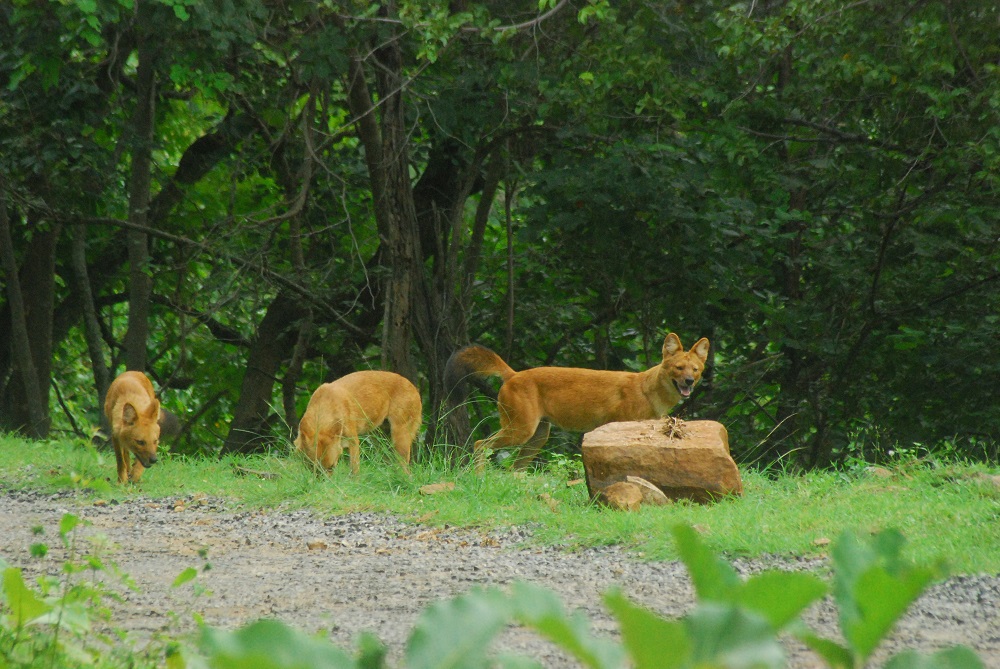Here are some little-known facts about how wild birds and animals engage in teamwork for survival!
Teamwork in the animal world is not surprising: bees swarm together, ants live in communities, lions work together as a pride and elephants need their herd. The gathering of food, whether by hunting or by foraging, remains the key focus for any group of animals.
Teamwork between monkeys and deer is legendary in the forest. Monkeys hang around herds of deer and are the first to warn the deer if a predator is nearby. The deer also has the advantage of getting treats from the trees when the monkeys break branches or drop some fruit! With such teamwork in play, it is hard work for a predator to come close enough unnoticed.

Image: Image Courtesy- Surabhi Ganguly
A pack animal that is relatively unknown is the Indian Wild Dog or Dhole. Often incorrectly called foxes because of their rusty colour and bushy tails, these dogs roam in the densest Indian jungles and hunt alongside tigers and leopards. When they play, they look like the dogs in your local dog park, running in circles, tripping over each other and rolling in the mud, and when they are lazy, they could sleep for hours without any concern about your presence. But when they are hungry, they are well-organised and ruthless. They communicate with each other by whistling, chase their prey until it is exhausted, then gang up on the animal from different corners and keep attacking it until it falls to the ground. A large enough pack of wild dogs could even bring down a tiger!
A little-known fact about birds in the jungle is that they form teams too. These birds team up with birds of another species and form a flock, also called a hunting party. Being insectivorous, these birds are found in various parts of the forest; some on the ground, others in the lower bushes, and still others sweeping from tree to tree or pecking in the wood. With so much activity, insects are displaced and can be easily spotted and caught as prey! This pretty smart strategy pays off well, and one can see the whole flock moving together from one area to the next, being bird-brained may not be such a bad thing after all!
The more time one spends in nature, the more one can understand these habits and patterns in the wild. Teamwork plays a crucial role in survival; perhaps it is time that humans learn a thing or two from the wild!